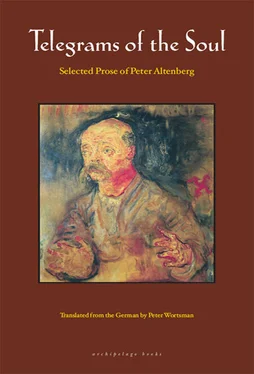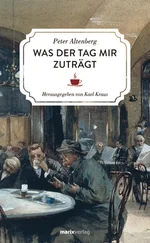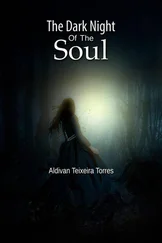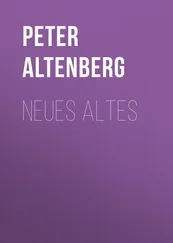Peter Altenberg
Telegrams of the Soul
to my father’s wit and my mother’s soul
P. W.
There are three idealists: God, mothers and poets!
They don’t seek the ideal in completed things—
they find it in the incomplete.
Peter Altenberg
I was born in 1862, in Vienna. My father is a businessman. He has one distinguishing quality: He only reads French books. For the past 40 years. Above his bed hangs a wonderful likeness of his God “Victor Hugo.” Evenings he sits in a dark red armchair, reading the Revue des deux Mondes, dressed in a blue robe with a wide velvet collar à la Victor Hugo. There’s not another idealist like him in this world. He was once asked: “Aren’t you proud of your son?”
He replied: “I was not overly vexed that he remained an idler for 30 years. So I’m not overly honored that he’s a poet now! I gave him his freedom. I knew that it was a long shot. I counted on his soul!”
Yes, indeed, oh noblest, most remarkable of all fathers, for the longest time I squandered your godly gift of freedom, doted on noble and altogether ignoble women, loafed around in forests, was a lawyer without studying law, a doctor without studying medicine, a book dealer without selling books, a lover without ever marrying, and finally a poet without composing any poetry. Can these short things really be called poetry?! No way.They’re extracts! Extracts from life. The life of the soul and what the day may bring, reduced to two to three pages, cleansed of superfluities like a beef cow in a reduction pot! It’s up to the reader to re-dissolve these extracts with his own lust for life and stir them back into a palatable broth, to heat them up with his own zest, in short, to make them light, liquidy and digestible. But there are “soulful stomachs” that can’t tolerate extracts. Everything ingested remains heavy and caustic. Such constitutions require 90 percent broths, watered-down blends. What are they supposed to dilute the extracts with?! With their own “lust for life” maybe?
Consequently, I have many adversaries, “dyspeptics of the soul,” quite simply. Bad digesters! “Finishing” is the artist’s all. Even finishing with himself! And yet, I maintain: that which you “wisely withhold” is more artistic than that which you “blurt out.” Isn’t that so?! Indeed, I love the “abbreviated deal,” the telegram style of the soul!
I’d like to capture an individual in a single sentence, a soul- stirring experience on a single page, a landscape in one word! Present arms, artist, aim, bull’s-eye! Basta. And above all: Listen to yourself. Lend an ear to the voices within. Don’t be shy with yourself. Don’t let yourself be scared off by unfamiliar sounds. As long as they’re your own! Have the courage of your own nakedness!
I was nothing, I am nothing, I will be nothing. But I will live out my life in freedom and let noble and considerate souls share in the experiences of this free inner life, by putting them out in the most concentrated form on paper.
I am poor, but I am myself! Absolutely and completely myself! The man without compromises!
How far do you get with that? One hundred Guldens a month and a few ardent admirers.
Well, that’s what I’ve got.
My life has been devoted to the boundless admiration of God’s artwork, “woman’s body!” The walls of my humble room are practically papered over with perfect studies of the nude. All are hung in oaken frames with captions. A fifteen-year-old bears the motto: “Beauté est vertue.” Beneath another it says: “There is but one indecency in the naked — to deem the naked indecent!”
Under yet another it says: “This is how God and the poets dreamed you up. But feeble little man invented modesty and covered you, en-coffined you!”
When P.A. wakes, his glance falls on the holy splendor and he takes the trouble and stress of existence in stride, since he was endowed with two eyes to drink in the holiest loveliness on earth!
Eye, oh eye, Rothchild-chattel of man!
But the others stare, they ogle life like the toad ogles the water-lily.
I’d like these words inscribed on my tombstone: “He loved and saw.”
Yes, indeed, to live in inner ecstasies, to get yourself all hot and bothered, piping hot, to let yourself be set on fire by the beauties of this world, that was all we ever wanted, father and son, that was all.
But whereas the old man was still somewhat attached to everyday life, at times colliding with it, the younger one fled immediately and without a second thought from this dungeon of duty.
True, I am poor, poor, but my noble father gave me the treasure which few fathers in their gentle wisdom grant their sons: “Time for development and freedom.” That allowed my uncorrupted soul to lovingly abandon itself to the inconceivable treasures which every hour of every day spill like pearls onto the desolate shore of life, allowed it to abandon itself to the tragic or the tender events, and grow, grow—.
My Mama was once a very delicate, strikingly lovely lady with fine hands and feet and slender joints. Like a gazelle. Once my father brought back from England a very pretty girl. He said to Mama: “This, my dear, is Maud-Victoria. She is the prettiest girl in England.” My Mama saw that she was indeed the prettiest girl in England and said in a downright sorrowful voice: “Will she have to stay with us from now on?” Whereupon, my father was so moved that he sent the “prettiest girl in England” back where she came from.
When my father paid frequent visits to the Ashantee girls,* my dearly beloved girlfriends, and gave them silk scarves as gifts, everyone said: “The old man and his son are two of a kind.”
As a boy I had an indescribable love for mountain meadows. The mountain meadow steaming under the blazing sun, fragrantly wafting, alive with bugs and butterflies, made me downright drunk. So too did clearings in the woods. On swampy sunny patches sit butterflies, blue silken small ones and black and red admirals and you can see the hoofprint of deer. But for mountain meadows I had a fanatical love, I longed for them. Under all the white hot stones I imagined there lurked poison adders, and this creature was the very incarnation of the fairy tale mystery of my boyhood years. It replaced the man-eating ogre, the giant and the witch. All the bites and their consequences, the terribly slow and torturous pain, I knew it all by heart, how to treat a wound and so on. The wondrously delicate gray-black body of the adder seemed to me to be the loveliest, most elegant creature, and when I loved a little girl I always pictured again and again only one thing happening: an adder would bite her in the foot on a hike and I’d suck out the venom to save her!
I knew the terrain inside out in which adders must necessarily make their homes, trod through it, lay in wait; but in my entire life I have never spotted a live adder, even though the region around Schneeberg is crawling with them. It remained for me a bad but sweetly disturbing dream.
Ever and again I imagined the scene: my beloved is bitten, above the ankle. Everyone stands around helpless and desperate. Then I fetch a flask of gentian root spirit from the nearest chalet, engender the proper state of intoxication, the only remedy. Then she says: “Heavens, however did you know that?” And I say simply: “I read it in Brehm—”
Always, everywhere I waited for adders. They never came.
At age 23, I worshiped a thirteen-year-old girl, wept through my nights, got engaged to her, became a book dealer in Stuttgart so as to hurry up and earn enough money to be able to fend for her later. But nothing came of it. Nothing ever came of my dreams.
Читать дальше











